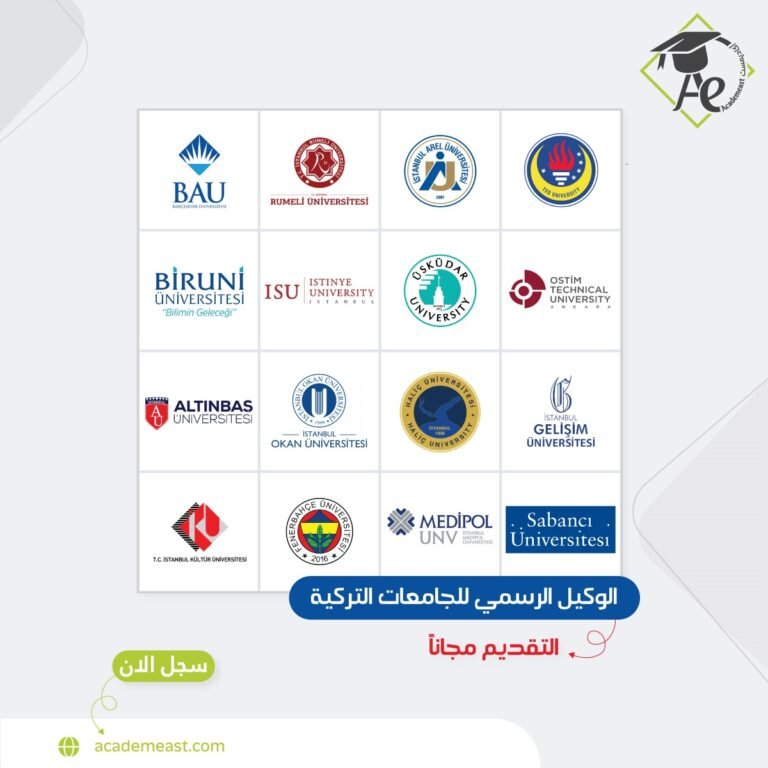
Study in Turkey
Turkey is a very large country in which there are many different civilizations. There are thousands of Arab students enrolled in higher education institutions in Turkey, as there are many advantages for foreign students in Turkey, such as: the efficiency of university education, cultural diversity, rich history, and the availability of scholarships, in addition It has a lower cost of living compared to other countries.
If you want to come to Turkey and complete your studies in it, this article will help you know the most important key points that are important to know.
In the Turkish education system, education starts in September and ends in June in most cases. Children start education at the age of 6 and finish at the age of 18. Kindergartens and day care centers also serve children between the ages of 3 and 6.
stages of the education system
incubation:
Pre-primary education is optional education for children between the ages of 2 and 6 who have not reached the age of compulsory primary education.
Primary education (elementary and middle school):
When children reach 69 months of age in Turkey, they must start primary school. This educational level lasts for 8 years and is divided into 4 + 4. Students receive primary education in the first four years, and intermediate education in the other four years. While foreign language instruction in public schools starts from the fourth grade, private schools can take it earlier. Turkey grants free primary education in state institutions. On the other hand, there are fees for private schools and colleges based on the advantages and services they provide to the student that help the student’s development in various aspects, and based on the various material facilities they provide and the provision of education in at least two foreign languages. Lessons are normally 40 minutes long, with 10-minute breaks. In the Turkish education system, if students cannot pass a class, they have to repeat the same class in the next year. At the end of 8 years, successful students are entitled to go on to a 4-year secondary education.
Secondary education (high school):
Students receiving primary education undergo various examinations at the end of this stage and, according to their results, are placed in secondary schools on preference lists. Students in Turkey generally have science, Anatolian, vocational, Imam Hatip, and evening high school options. Students who want to continue their educational life in higher education institutions are generally preferred Anatolian and science high schools. Vocational high schools are institutions for students who want to gain proficiency in a particular field and want to enter commercial life. Evening high schools, on the other hand, are institutions where classes are given in the evening hours, where people who have completed their primary education are employed and have no time to receive formal education.
University education (Bachelor's level):
The university system in Turkey is subject to the supervision of the Higher Education Council. Turkey has 131 public universities and 78 private universities (the total number is 209 higher education institutions), five of which are located in the Turkish Republic of Northern Cyprus. In addition to public and private universities, there are also higher vocational institutes that serve the labor market. . In general, university education takes four years in universities, but some fields take longer, such as medicine, which takes six years, and dentistry and veterinary sciences, five years. To find out many other details about Turkish universities, conditions, prices, and methods of application, do not hesitate to contact the Academicist team and take a free consultation.
Students must pass the University Admission Test in order to enter public universities.
Graduates from the four-year programs are awarded bachelor's degrees.
The education system in Turkey for undergraduate studies is divided into three sections:
1- The normal education system.
Regular working hours in Turkish public universities start at eight in the morning and end at five in the afternoon on all days of the week, with the exception of Saturday and Sunday, taking into account that working hours may vary from one student to another based on the hours of his lessons. During this time, students are required to pay university fees (fees vary from one university to another). Fees, available seats, accepted certificates, and conditions are announced for each university during the registration period. Registration in most public universities is electronic.
2- Evening education system (İkinci Öğretim).
The evening shift in Turkish public universities starts at five o'clock in the afternoon and ends at ten o'clock in the evening on all days of the week, except for Saturday and Sunday, knowing that during this time the students must pay fees to the university and no nationality is excluded from the payment (the fees vary from one university to another Fees, available seats, accepted certificates, and conditions are announced for each university during the registration period. Registration in most public universities is electronic, and not all universities provide evening shifts for all departments.
3- The open education system (Açık Öğretim).
It is available in several universities, including Anadolu University, and Anadolu University in the Faculty of Open Education contains 17 “4-year” branches and 34 “two-year” institutes, and the university provides several departments except for engineering and medicine departments, and there is no difference between the open education system and the education system Ordinary in all respects in general, knowing that students who study in Turkish universities can also apply to study another branch during their university studies and application is through the student’s document. As for students who are not accepted in another Turkish university, they must undergo the university’s IOS exam, the university does not exempt students of installments and they have to pay a fee but the fee is very nominal.
